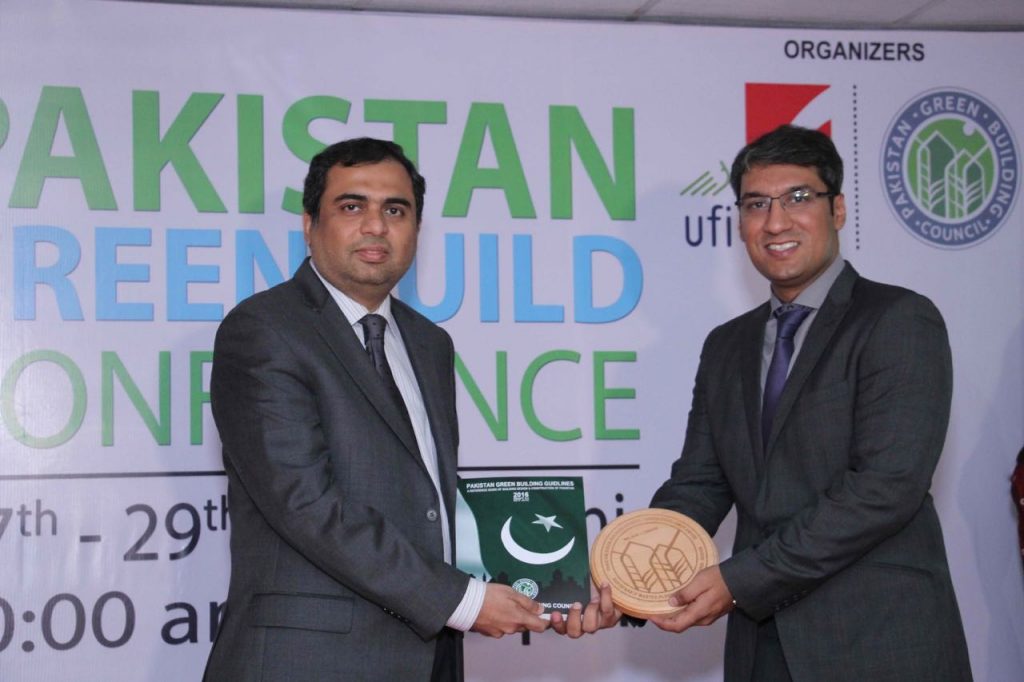Estimated reading time: 3 min
RMJM’s DHA City Karachi (DCK), Pakistan’s first ever sustainable city, has been awarded a Green Excellency Award by the Pakistan Green Building Council. The awards are given to individuals and organisations committed to advancing green building design, construction and operations. RMJM Osmani’s project was given the Green Excellency Award under the categories “Sustainable Masterplanning & Architectural Design” and “Sustainable Infrastructure Development.” DHA was also recognised under the category of “Leadership in Sustainability.”
 The RMJM Osmani team and the various winners at the Green Excellency Awards
The RMJM Osmani team and the various winners at the Green Excellency Awards
The occasion was attended by large number of senior Architects, Engineers and other professionals working in the field of sustainability. During the event, Pakistan Green Building Guidelines V-1 was also launched which are to be implemented to encourage a more sustainable future for Pakistan. Over the last several months RMJM Osmani played a significant role in contributing to these guidelines and continues to help set the benchmark for sustainability in the region.
Based just outside Pakistan’s most populous metropolitan city, DCK showcases the benefits of sustainable initiatives in rapidly developing nations. Of course, RMJM was heavily involved in the masterplanning of Islamabad, now regarded as the most developed city in Pakistan, and it followed a similar lead on DCK. Atif Osmani, CEO of RMJM Osmani, and a consultant in the design and construction of Pakistan’s first ever sustainable city said: “We knew we had to do something extraordinary.” There are few who would disagree. The task of creating a sustainable city for 600,000 people in a challenging climate while implementing energy-saving technology and infrastructure was one that could have been too big. However, as these awards show, RMJM Osmani do not shy away from a challenge.
DCK impresses on a number of levels when it comes to sustainability but perhaps none more so than its future-proofing in preparation for changing environmental conditions. While many of the developments throughout the city weren’t cheap, DHA understood that in the long-term the money would be well spent and cost effective. Atif Osmani, explained: “We are trying to project sustainability as an achievable aim for clients in developing nations. Part of that involves explaining to the client that including double glazing and solar panels will cost more, but it will save a lot of money in the long run.”
While this project is a beacon for sustainable design across the world, it is one of a number of forward-thinking RMJM projects that have been recognised with awards for sustainability. The Khoo Teck Puat Hospital was awarded Best Green Building in 2011 and recognised with a Skyrise Greenery Award the year before. There have also been a host of LEED accreditions awarded to RMJM for projects spanning the globe including the Varyap Meridian complex (Istanbul) and the China Merchants Bank Tower (Shanghai) showing that when it comes to planning for the future, RMJM continues to lead the way.



